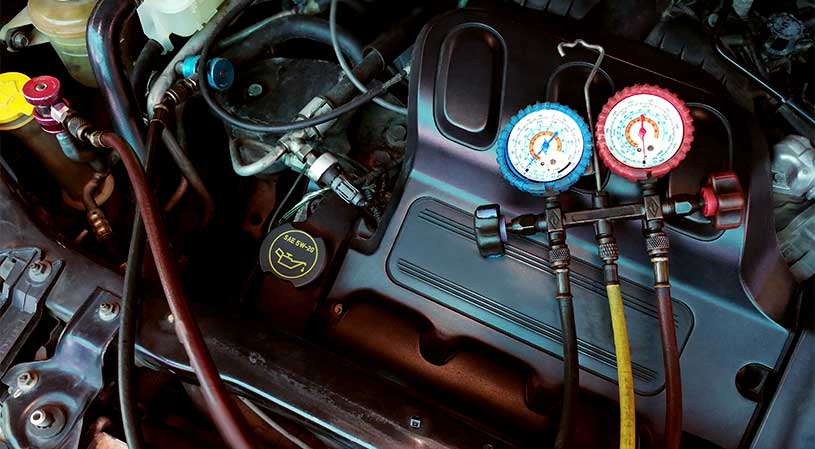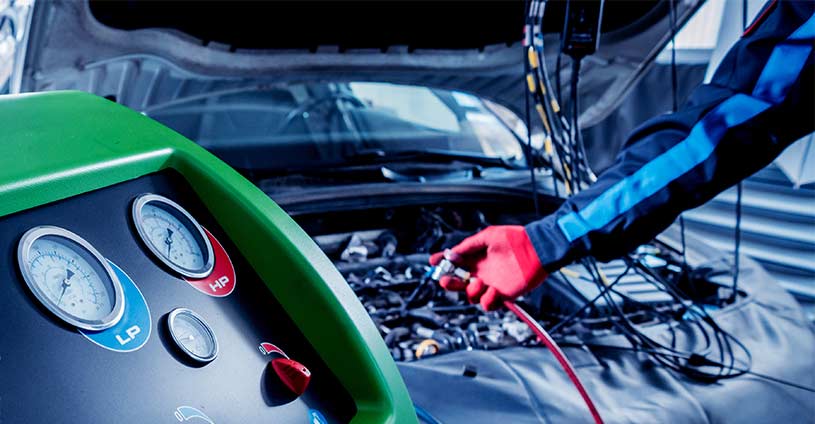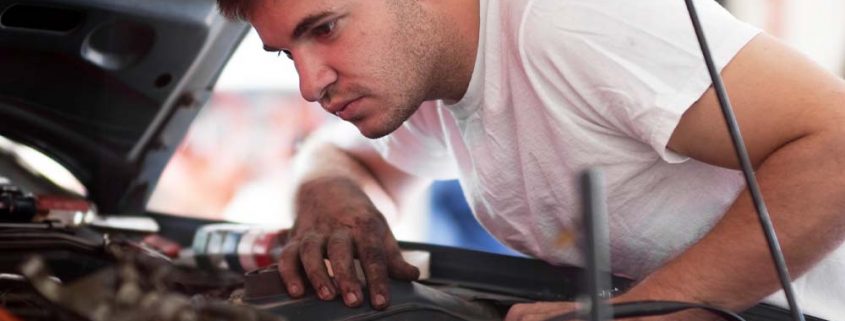Should You Get A Cheap Aircon Regas?
Risks Of DIY & Cheap Car Aircon Regas
Doing a DIY aircon fix on your car might seem like a good idea. However, when you consider what is involved, you’ll find that it’ll be easier and cheaper in the long run to take the car to a reputable air conditioner repair workshop.
When it comes to professional aircon regas work, you deserve the best possible service. Play it safe and nip into Natrad.
Unlike the simple DIY job of changing the oil and oil filter on your car, repairing the air conditioning system means working with fluorocarbon gas that is restricted by law and can’t be obtained by an individual without a licence. A cheap unlicensed repairer might offer to use an unregulated, highly flammable, hydrocarbon gas as a substitute refrigerant.
According to VASA, the industry body for automotive air conditioning, electrical & cooling workshops in Australasia, re-gassing a car air conditioner with a substitute hydrocarbon gas is a dangerous practice and should be illegal.
Why Using A Cheap Substitute Gas Is Dangerous:
A hydrocarbon gas like M30 is cheaper than the R134a or HFO-R1234yf, but unlike these manufacturer recommended gases, it is highly flammable. Hydrocarbon gases can cause damage to your vehicle’s air conditioner components and expose vehicle occupants to a potentially lethal risk.
If you get a quote from a cheap repairer you find on Gumtree or Facebook marketplace, make sure that they intend to use the correct inert gas recommended by the vehicle manufacturer to repair your car air conditioner and that they hold the correct licence to complete the job. Here’s why it’s so important make sure the right gas is used to re-gas your car air con:

1. Your car isn’t designed for non-inert gases
Your vehicle’s air conditioning system was designed to work with the recommended inert gas. The air conditioning system of your car contains rubber and aluminium components that are unsuitable for containing highly flammable gas, especially at the high pressure required by the car air conditioner system.
For example, LPG, another flammable hydrocarbon gas, must by law be contained in solid copper pipes. Using incorrect gas in your car air conditioner system could also impair the circulation of lubricating oil, causing damage to internal parts and creating the risk of a gas leak.
2. Hydrocarbon gas like M30 is flammable
If you’re installing or topping up the refrigerant gas using a hydrocarbon gas, there’s a risk of fire. The proximity of the flammable gas to the cabin creates a fire risk for the passengers and driver. Consider if a collision caused damage and resulted in flammable gas being released inside the cabin.
Now we’ve covered why you shouldn’t opt for a cheap air con regas, let’s take a look at the process involved.
What’s involved in a DIY regas?
The first thing you need to know if you are contemplating a DIY regas is that refrigerants such as R134a are now tightly regulated in Australia, so you cannot legally purchase it without a licence.
Second, knowingly venting a fluorocarbon refrigerant into the air during any maintenance, service, or repair is illegal.
Third, attempting to add gas to your car air con system is dangerous and can result in burns. If you’re using flammable gas, it could ignite. Even if you were to use the correct gas, you run the risk of getting freeze burns if it comes into contact with your skin or eyes. So protective clothing, including safety glasses and gloves are a must.
Cheap gas may be contaminated with water, dirt or mould which you could unknowingly introduce into the air conditioner system. This can result in corrosion and deterioration of parts in the system and will cost a lot more than you saved by doing the top up yourself.
Adding too little gas means the air conditioning won’t operate properly and may suffer premature wear. Too much gas could break the compressor, and you’ll have a much more expensive repair to deal with.
If you do manage to top up the gas without burning yourself, damaging parts or breaking the law, the fix is likely to only be temporary. That’s because there was originally a leak (which caused the air con system to be low on gas in the first place) that has yet to be fixed. You’ll still need to take the car to a licensed technician to have the cause of the leak located and properly repaired. We recommend skipping the DIY parts and heading straight to a reputable workshop like Natrad to get it done correctly and safely.

Environmental Risks – Do You Need A Licensed Technician?
R134a causes damage to the ozone layer and is a potent greenhouse gas. It is illegal to release these refrigerant gases into the environment.
A licensed technician uses a dedicated recovery unit to collect the gas from the air conditioner during the repair and service. The gas is then safely returned back into the fully sealed air conditioner unit once the repairs are complete.
Why You Should Use A Reputable Air Conditioning Workshop
To ensure that hazardous refrigerant gas is handled safely, the technician performing the repairs on your car needs to hold an AAC02 licence from the Australian Refrigeration Council (ARC). A licensed technician will handle the refrigerant gas and perform repairs according to their strict training.
They will ensure that your car HVAC system is maintained in optimal operating condition and that the gas is handled safely according to the regulations. A licensed technician will take the precautions to keep passengers and drivers safe and prolong the life of your vehicle air conditioner’s parts.
Natrad has teams of licensed technicians in every one of our workshops, ready to give you a superior aircon regas service.








